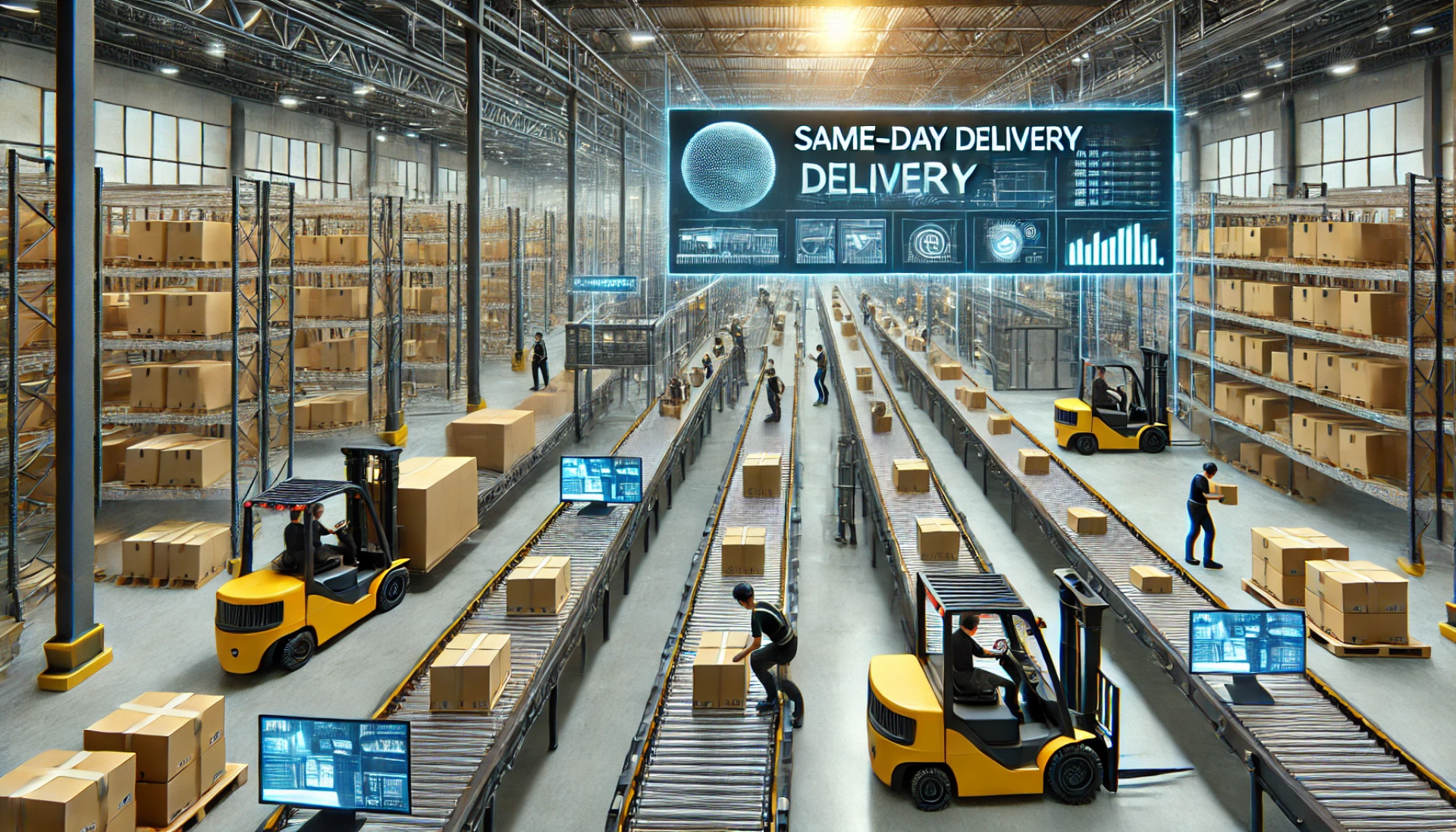Beyond the Warehouse Floor: How Logistics Companies Can Innovate to Attract Gen Z Talent
The logistics industry is the backbone of global trade, ensuring goods move seamlessly from suppliers to customers. But as the world evolves, so does the workforce. With Gen Z—the digitally native, socially conscious generation—entering the job market, logistics companies must adapt to meet new expectations. Unlike previous generations, Gen Z values work that aligns with their personal values, offers growth, and embraces technology. To attract this demographic, logistics companies must look beyond traditional roles and provide an innovative, forward-thinking work environment. Here’s how logistics companies can appeal to Gen Z and position themselves as employers of choice.
Why Attracting Gen Z Talent Matters for Logistics
The logistics sector faces a growing demand for skilled workers and a need for fresh ideas to meet modern challenges. Gen Z brings a unique perspective, often focused on technology, sustainability, and flexibility. Attracting Gen Z talent not only helps logistics companies fill vital roles but also brings a fresh approach to an industry primed for digital transformation. By aligning their work culture with the expectations of Gen Z, logistics companies can attract and retain a workforce that’s innovative, adaptable, and invested in long-term success.
Embrace Technology and Digital Roles
Gen Z is the first fully digital generation, having grown up with smartphones, social media, and cloud-based solutions. They expect workplaces to be equally tech-savvy and are drawn to roles that incorporate technology in meaningful ways. For logistics companies, integrating technology into everyday operations isn’t just a way to improve efficiency—it’s essential for attracting Gen Z talent. Here are some ways logistics companies can position themselves as tech-forward employers:
1. Highlight Data-Driven Roles: Gen Z appreciates data and insights, so consider creating roles like data analysts, supply chain technologists, or logistics coordinators who use data to improve processes. These positions allow younger employees to use digital tools, analyse information, and make impactful decisions in real-time.
2. Invest in Automation and AI: Many logistics companies are already using automation and AI to streamline operations. Make these technologies part of your employer branding. Highlight opportunities for employees to work with cutting-edge tech, from warehouse automation systems to AI-driven route optimisation, showing Gen Z that logistics can be both innovative and forward-thinking.
3. Develop Tech-Supported Training: Provide training modules on the latest logistics tech, from AI and machine learning to the Internet of Things (IoT) and blockchain for tracking goods. Tech-supported training can help Gen Z feel they’re developing skills that are valuable not only in logistics but also across industries, making a career in logistics more attractive.
Focus on Sustainability and Social Responsibility
Gen Z is widely known for their commitment to environmental and social causes. This generation is more likely to choose employers whose values align with their own, particularly regarding sustainability. Logistics companies can meet this expectation by adopting eco-friendly practices and making social responsibility part of their brand.
1. Commit to Green Initiatives: Reducing carbon emissions, minimising waste, and optimising routes to save fuel are crucial steps logistics companies can take to become more sustainable. Highlight these initiatives in recruitment materials and job descriptions to show potential Gen Z candidates that your company is committed to positive change.
2. Encourage Employee Participation in Sustainability Efforts: Create roles that specifically focus on sustainability, such as environmental coordinators or green logistics strategists. Offering employees the chance to work directly on sustainability projects, like implementing recycling programs or exploring renewable energy options for warehouses, can make logistics roles more appealing.
3. Support Community and Social Projects: Gen Z values companies that give back to the community. Partner with local organisations or establish volunteer programs where employees can contribute to social causes. Highlighting these programs shows Gen Z candidates that your company cares about making a difference beyond the bottom line.
Offer Clear Career Growth and Development Opportunities
Diversity and inclusion are essential to Gen Z, who expect workplaces to be welcoming and representative. Logistics companies that emphasise inclusivity can create a more positive, supportive environment that appeals to this generation.
1. Commit to Inclusive Hiring Practices: Make diversity a priority in recruitment by actively seeking diverse talent and ensuring hiring practices are fair and unbiased. This includes creating job descriptions that use inclusive language and working with diverse recruitment channels.
2. Promote a Culture of Respect and Belonging: A supportive and inclusive culture goes beyond hiring. Encourage respect, teamwork, and open communication within the workplace. Implementing programs that celebrate diversity—such as cultural awareness days, training on inclusivity, or employee resource groups—can create a welcoming environment for Gen Z.
3. Encourage Innovation and New Ideas: Gen Z wants to feel that their voices are heard. Create a culture where employees are encouraged to share their ideas, innovate, and suggest new approaches. By empowering employees to contribute to change, logistics companies can foster a sense of belonging and inspire loyalty among younger employees.
Conclusion: The Future of Logistics with Gen Z
Attracting Gen Z talent requires a shift in traditional logistics practices. This generation is looking for meaningful work, a supportive environment, and opportunities to grow personally and professionally. Logistics companies that embrace technology, commit to sustainability, offer career growth, and support work-life balance can successfully capture the interest of Gen Z candidates. By investing in these strategies, logistics companies can build a strong, future-focused workforce ready to drive innovation and growth in a rapidly evolving industry.
Career development is a top priority for Gen Z, who want to see a clear path to progression and continuous learning opportunities. Traditional roles in logistics may not have always prioritised growth, but by building structured career development programs, logistics companies can attract ambitious young talent eager to build long-term careers.
1. Provide Structured Career Paths: Map out potential career paths for each role, showing how employees can move up within the company, transition into new areas, or even develop specialised skills. For example, warehouse employees might progress to warehouse managers, while entry-level analysts could move into logistics planning roles or project management.
2. Offer Mentorship Programs: Gen Z values mentorship and feedback. Pair new hires with experienced mentors who can guide them, offer support, and provide valuable career insights. A mentorship program can make a logistics career feel more rewarding and meaningful by building connections and fostering personal growth.
3. Invest in Continuous Learning: Gen Z is used to a world that’s constantly evolving and expects workplaces to support their desire for learning and growth. Offer continuous learning opportunities through workshops, online courses, or partnerships with educational institutions. Whether it’s learning about advanced logistics software or improving leadership skills, these opportunities show Gen Z that your company values their development.
Gen Z places a high value on work-life balance and is drawn to companies that understand the importance of flexibility. The logistics industry, known for long hours and physically demanding roles, can benefit by making adjustments to attract younger candidates.
1. Implement Flexible Scheduling: Offer flexible shifts and the option to work remotely where possible. For example, data-driven roles, customer service, or administrative positions could be performed remotely part-time. Flexible scheduling helps Gen Z feel they’re able to balance work with personal life, which is a priority for this generation.
2. Encourage Health and Wellness Initiatives: Support the well-being of your workforce with wellness programs, including access to mental health resources, gym memberships, or wellness allowances. Gen Z appreciates workplaces that care about their physical and mental health, and wellness programs can make logistics roles feel less daunting.
3. Emphasise Job Security and Stability: In a post-pandemic world, job security is more important than ever. Highlight the stability of your company, the essential nature of logistics work, and any support systems in place to help employees navigate challenges. Offering financial planning resources or emergency funds can show Gen Z that your company is committed to long-term security.











